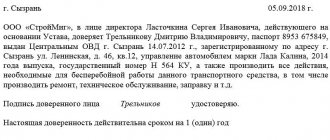There are several types of intermediary agreements concluded between the customer (principal) and the intermediary (agent). The agency agreement is considered the most universal. According to its terms, an agent who has undertaken an obligation and fulfilled it on his own behalf or on behalf of the customer (but always at the expense of the customer) receives a reward. Chapter 52 of the Civil Code of the Russian Federation regulates the relationship between the parties to the agency agreement (Articles 1005 – 1011). The amount of payment for the service is specified in the agreement: it can be a certain fixed amount, or an amount calculated in the amount of the percentage of the cost of the executed order established by the agreement. Whether an agency agreement is subject to VAT and how to reflect these transactions in the accounting of both parties to the transaction is the topic of this publication.
The concept of an agency agreement
First, let's talk about what an agency agreement is. The answer to this question can be obtained by studying Chapter 52 of the Civil Code of the Russian Federation.
Agency contract
(according to Article 1005 of the Civil Code of the Russian Federation) is a bilateral paid transaction, within the framework of which:
- one party instructs the other party to perform certain actions of a legal or other nature;
- the other party agrees to perform these actions.
The one who gives the order is called the principal, and the one who must carry out the manipulations is called the agent.
Actions are carried out at the expense of the customer. This rule applies in any situation, since it is directly provided for in Art. 1005 of the Civil Code of the Russian Federation. Even if the agent spends his funds unplanned, the principal will be required to compensate for the expenses. However, the performer, of course, must comply with the principles of good faith and reasonableness.
The parties can agree on whose behalf the contractor will act - on his own or on behalf of the customer. If the first option is chosen, the provisions on the commission should be applied to the transaction, and if the second - on the order (Chapter 51 of the Civil Code of the Russian Federation and Chapter 40 of the Civil Code of the Russian Federation, respectively).
Negative points
Of course, the agent’s work needs to be monitored and constantly checked.
Unfortunately, it is not always possible to trust and be confident in the correctness of his actions.
After all, you will have consequences.
For example, you can hire an agent to build a house, bathhouse or road.
After completion of the work and delivery of the object, ownership of the constructed object will be registered in your name.
This means that all the risks in terms of compliance of the structure with GOSTs
and other requirements will be assigned to you.
After all, you accepted the work from the agent and paid for it.
Of course, if it turns out that the agent is incompetent and abusive in carrying out your instructions, it is possible to initiate legal proceedings with various demands for compensation, etc.
But the point remains that they will collect it from you first, and only then can you claim recourse.
Agency in the field of sales of goods
The conclusion of an agency agreement for the sale of goods implies that the agent will have to sell certain products on behalf of the principal. In this case, the parties may provide for a specific method of executing the transaction, for example, retail or wholesale sales.
The intermediary can act:
- on his own behalf, but at the expense of the customer - in such circumstances, the agent has the right to enter into sales and purchase agreements with buyers;
- on behalf and at the expense of the principal.
Agency in sales has a number of features.
Comment on the rating
Thank you, your rating has been taken into account. You can also leave a comment on your rating.
Is the sample document useful?
If the document “Agency Agreement for the Purchase and Sale of Products” was useful to you, we ask you to leave a review about it.
Remember just 2 words:
Contract-Lawyer
And add Contract-Yurist.Ru to your bookmarks (Ctrl+D).
You will still need it!
Essential conditions
Essential terms mean conditions without the agreement of which the transaction cannot be considered concluded. In our case it is:
- subject of the transaction - actions that the agent undertakes to perform on behalf of the principal, namely, to sell the goods;
- designation of on whose behalf the intermediary acts - whether he sells the product on his own behalf, or on behalf of the principal.
When concluding a specific contract, the parties may also recognize a certain condition as essential, even if this is not expressly provided for in the law.
Example from life
It is worth noting that contracts of this type are widely used by business entities, that is, the significance and role of such a contract in a market economy are quite large.
Let's consider an example: in July 2010, being the principal, she instructed her partner, that is, the commission agent, to sell 10 copying machines for the amount of 60,000 rubles, including VAT - 9,152.54 rubles. According to the concluded agreement, the commission is 4 percent of the price established, as well as the amount of additional benefit if the intermediary sells the goods at a higher price than indicated by the owner of the devices. Example: within a month, the Service Center organization sold all equipment for 75,000 rubles, including VAT - 11,440.68 rubles. Thus, his commission amounted to: 60,000 rubles x 4% + (75,000–60,000 rubles) = 17,400 rubles. The VAT base in this case is determined as follows: ((60,000–9,152.54 rubles ) x 4% + (75,000–11,440.68 rubles) – (60,000–9,152.54 rubles)) x 18% = 2,654.24 rubles. VAT, which will be charged to the budget by Contact Plus after the sale of a batch of copiers, will be 9,152.54 rubles. And VAT on commission remuneration will be deducted - 2,654.24 rubles. Income for profit tax purposes for the principal will be the amount of 63,559.32 rubles (75,000–11,440.68 rubles). The expenses taken into account when calculating the tax base for income tax will be the amount of commission, including additional benefits, paid - 14,745.76,000 rubles (17,400–2,654.24 rubles).
How to draw up a contract correctly?
A standard sample of an agency agreement for the sale of goods has not been approved. This means that any of the parties can prepare their own draft document. It does not matter who exactly becomes the actual author, because the sample on behalf of the principal, as well as the sample on behalf of the agent, must reflect the real will of the signatories and not contradict the current legislation.
The contract must include the following information:
- name of the document, its details, including number, date and place of signing;
- full and abbreviated names of the parties;
- subject of the contract – services for the sale of products;
- product characteristics – name, quantity, assortment, packaging;
- powers of the intermediary;
Leave a comment on the document
Do you think the document is incorrect? Leave a comment and we will correct the shortcomings. Without a comment, the rating will not be taken into account!
Thank you, your rating has been taken into account. The quality of documents will increase from your activity.
| Here you can leave a comment on the document “Agency Agreement for the Purchase and Sale of Products”, as well as ask questions associated with it. If you would like to leave a comment with a rating , then you need to rate the document at the top of the page Reply for |
Contract structure
The structure of the agency agreement for the sale of goods, as well as its content, is determined by the parties. The entire text of the agreement is divided into sections, subsections and clauses.
The current legislation does not establish a single document template. However, each company can develop its own draft agreement and apply it when concluding relevant transactions with partners.
Here is an approximate structure of an agency agreement for the sale of products that you can use when preparing your document:
- Section 1 – Subject of the agreement.
- Section 2 – Duration of the contract.
- Section 3 – Rights and obligations of the parties.
- Section 4 – Deadline for executing agency orders.
- Section 5 – Submission of Agent's Report.
- Section 6 – Agent's remuneration and payment procedure.
- Section 7 – Responsibility of the Parties.
- Section 8 - Confidentiality.
- Section 9 – Grounds and procedure for termination of the contract.
- Section 10 – Resolution of disputes arising between the parties.
- Section 11 – Force Majeure.
- Section 12 - Other Terms.
- Section 13 – List of attachments (for example, Product range, Schedule).
- Section 14 – Details of the parties.
Next, we will analyze the structure and content of the agreement according to the sections listed above.
Subject of the transaction
As noted above, the subject of the agency agreement is one of the essential terms of the transaction.
In this case, the subject of the contract is the services of an agent for the sale of the principal’s goods. In other words, these are all the actions that the contractor will perform to fulfill the customer’s instructions.
| A separate paragraph should be devoted to the characteristics of the product, namely, indicate the name, quantity, and delivery basis. | The product description can also be reflected in the annex to the main contract - Product range. The annex in such circumstances is an integral part of the contract. |
Contract time
This is not a mandatory condition, because according to paragraph 3 of Art. 1005 of the Civil Code of the Russian Federation, an agency agreement can be concluded either for a certain period or without specifying such a period.
In this section it is also worth specifying from what moment the agreement is valid, for example, from the moment of its signing or from a certain date.
Rights and obligations of partners
Typically, this block is the most voluminous, and this is quite justified, because maximum detail of the rights and obligations of the counterparty allows us to minimize the risk of controversial situations.
Table No. 1. Rights and obligations of the parties to an agency agreement for the sale of goods.
| Rights | Responsibilities | ||
| Principal | Agent | Principal | Agent |
|
|
|
|
Of course, this is not a complete list of possible rights and obligations of partners. The parties can add other positions here if this does not contradict current laws and the essence of the contractual relationship.
Deadline for completing an agent's order
The parties have the right to determine within what time frame the agency order will be executed, namely, to indicate the start date of implementation actions and the date of their completion.
Partners can also establish that the transfer of performance results will be carried out in accordance with a specific calendar plan. In this case, you should fill out the Schedule Schedule application and indicate that it is an integral part of the contract.
Submitting reports
The contract must specify a mechanism according to which the agent will report to the principal on the results of his activities.
Reporting can be prepared:
- regularly – as the transaction is executed;
- one-time - upon termination of cooperation.
The agent also attaches to the report evidence of expenses incurred by him, compensation for which will be provided by the principal.
Remuneration and settlements
In this block, the parties must agree on the method of determining the contractor’s remuneration, for example, in a flat amount or as a percentage of the transaction price. In addition, the payment mechanism should be mentioned - non-cash or cash.
If the contract does not detail the procedure for paying remuneration, then the principal is obliged to pay for the services of the contractor within a week from the date of submission of the report. This rule is provided for in paragraph 3 of Art. 1006 of the Civil Code of the Russian Federation.
Responsibility
If one of the partners has not fulfilled his obligations under the contract, he must compensate the other party for losses, including lost profits. Compensation for damages does not relieve a person from fulfilling his obligations under the contract.
For late transfer of funds received for the principal, the agent pays a penalty and (or) a fine. The same applies to the customer if he delayed payment of the contractor’s remuneration.
The amount of the penalty is determined in the contract as a percentage of the amount of funds not transferred. The fine is usually set at a fixed amount.
Confidentiality
The parties may stipulate that the terms of the agreement, like any other information obtained during cooperation, are considered confidential and are not subject to disclosure.
Terms
To make it more convenient for you to understand the terminology used in the Code and our article, we will try to define the main terms.
Agent
An agent is a performer under an agency agreement, a person who will perform the actions entrusted to him.
An agent can be either an individual or a legal entity.
Sometimes, if required by law or regulation, the agent must have licenses or special permits.
For example, if you instruct an agent to build a house, he must have SRO approvals
.
Principal
The principal is, in fact, you.
The principal is the person in whose interests the agent acts.
The principal is the so-called main manager or customer of the agent’s services.
The principal bears great risks, because all the obligations that the agent formalizes for him will become his obligations in the future.
Agent's commission
An agent's fee is a fee for the services of an agent.
This amount is usually reflected in contracts as a separate line; it is not included in the agent’s expenses for executing your order. This is his bonus.
Subagency agreement
A subagency agreement, subagent, is an agreement that an agent can enter into by transferring your business to another person - a subagent.
This sometimes happens when an agent - a fairly large company with a well-known reputation - enters into an agency agreement, and attracts other performers - subagents - to carry out small and various other tasks.
If it is critical for you that the order is carried out by the agent, you can indicate in the agency agreement that work with a subagent is prohibited.
In any case, the agent remains responsible to you for all activities and actions that the subagent will perform.
Power of attorney
A power of attorney is a document that lists all of the powers you have granted the agent.
A power of attorney is a mandatory element of an agency agreement.
It must be drawn up, even despite the existence of an agency agreement.
The power of attorney can indicate the right to delegate the execution of an order if you agree to involve a subagent in your order.
The main thing is timing
Keep in mind that it is very important for the committent to receive the report on time. After all, if he receives this document late, then there may be a delay in paying VAT. At the same time, civil legislation does not establish a period during which the commission agent must inform the principal about the sale that has occurred. But untimely notification can lead to unfavorable consequences for the principal, which is why it is necessary to establish a deadline for submitting the report in the contract. This can be either a specific day or a period of time during which the report must be transmitted.
In order for the commission agent to “not forget” to fulfill his duties, it would be nice to include penalties in the commission agreements in case of late submission of the report. In addition, the contract should not only indicate how the report will be transmitted (by fax, courier or other means), but also specify how the principal's representatives will report its receipt.
When limiting reporting periods, it is necessary to be guided by the provisions of Article 316 of the Tax Code of the Russian Federation, which states that if trade is carried out through a commission agent, then the principal determines the amount of proceeds as of the date of sale on the basis of the commission agent’s notification of the sale of goods belonging to the principal. And within three days from the end of the reporting period in which the sale occurred, the commission agent is obliged to inform the owner of the property about the date of its sale. Thus, the Tax Code of the Russian Federation stipulates the duty of the commission agent and the period within which he is obliged to notify the principal about the completed sale. The only thing is that the form of the report in which the commission agent must notify the principal is not specified in the legislation. The most interesting thing is that the notice can even be conveyed orally, but, most likely, it will be convenient for both parties if such a document is a corresponding report - in this case, you will not have to report twice on the work done.









